Settled on the hills, overlooking the vast uninterrupted expanses of the village of Paud is established the UWC Mahindra College, Pune, one of the best boarding schools in India. The institute is unique in many ways and has been a point of innovation for various methodologies in the education schemes. About 40 Kilometers from the serene city of Pune and close to the Mulshi Hydroelectric Dam, this school is a sight to behold. The Mula River close by and the Western Ghats on the other side to keep company, the UWC Mahindra College, is a classic example of co-existence of the rural and urban setting in perfect harmony. In fact, it would not be wrong to say that the very basis of the idea of UWC is ‘harmony’ between various elements of society, nature, race, colour and backgrounds.
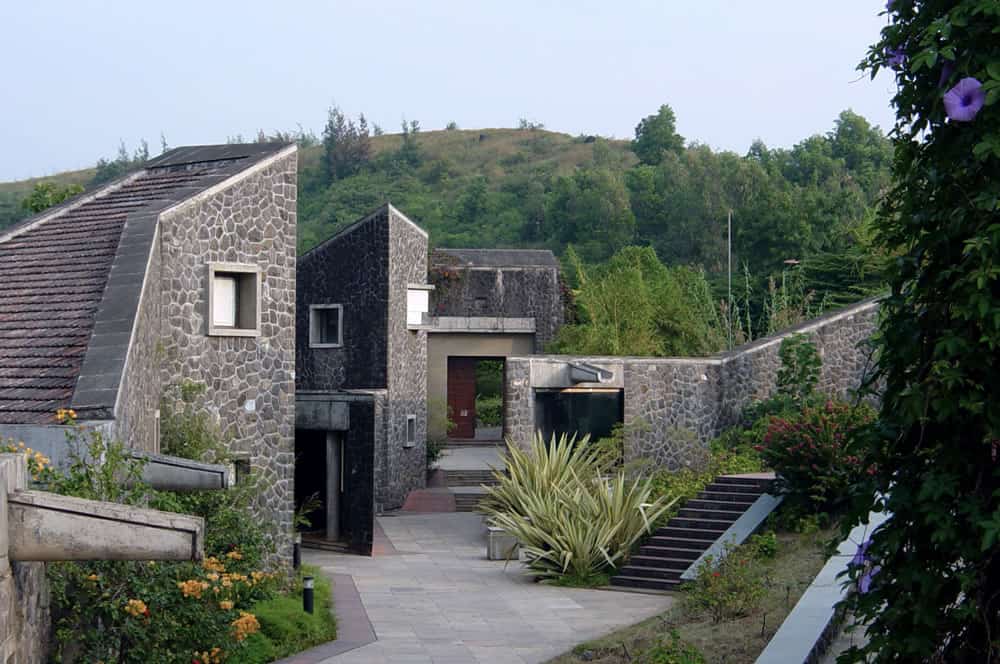
Foundation
It was the 28th of November of 1997 when Queen Noor of Jordan and the legendary Nelson Mandela laid the foundation of UWC Mahindra College, Pune; making it the 18th UWC college in the world. This institute is third in Asia, and it was the prestigious Mahindra family that financed the beginnings of the institute. To be more precise, UWC Mahindra College was the vision of Harish Mahindra, who believed that such an institute is required in his homeland.
The basis of United World Colleges is to make education a channel to unite students various nationalities and cultures across the globe into a single functional unit. This creates a world without boundaries and lives as a unified body which functions in perfect harmony. The origins of the idea of UWC is all the more interesting and inspiring. It was in the height of the Cold war in the year 1962 when the Atlantic College, located in the UK first laid the concept of UWC. This was to bring youth’s from all around the world to promote the idea of peace, harmony, shared learning, understanding of various cultures from across borders and collaboration of ideas and traditions. This propels ‘positive change’ which was much required at the time and was possible only through the medium of knowledge.
The Vision behind UMC
Kurt Hahn and his dedicated vision of education pioneering was the first ‘step’ ever to lay the foundation for the UWC movement in the Atlantic College, as we know it today. The NATO Defence College inspired him in Paris where he witnessed cooperation and a common goal of propagation of peace. After some years, Lord Mountbatten and his Ernst for futuristic ideas lead to UWC becoming a world movement and various institute were subsequently launched in multiple countries of Europe, America and Asia.
Today, UWC represents a strong body of the positive change that is required in the global society to inspire youth to be the driving force for a better tomorrow. The college proudly represents 150 and above countries via the national committees. The concept of SHORT COURSE PROGRAMMES offered here makes it a centre for students attendance from a vast diversities from various countries. Also, the unique curriculum makes it one of the most sought after institutes and its compassion to welcome individuals with warmth.
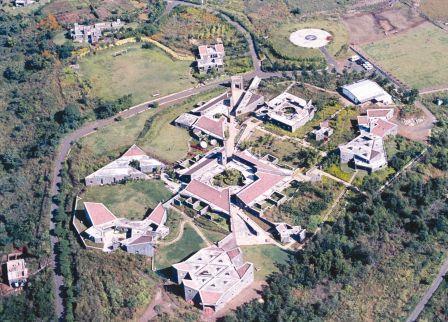
UWC Mahindra College: Infrastructure
Much like its conception, the architecture of the institute is awe-inspiring as well. The campus’s unique design reflects the majestic hills surrounding it, and the infrastructure forms a ‘seamless merge’ of structure and environment through various door inlets, water spout and window shade boxes. The main idea behind the unique architecture of UWC Mahindra is to have the structure ‘resonate’ the hills around. A walk through the hallways and the pathways will pleasantly puzzle you as nature blends into the architecture in perfect synchronization the beautiful rural life in its native state, where students get a glimpse of the diversity. This also teaches them to ‘admire the beauty’ in everything and nature is all about harmony. With the 175 acres of vast expanses, the campus is all about utilising modern technology where required. The labs are high-tech with modern equipment; this includes the Science and digital lab.
The library is a treat, where students love browsing through the treasures of books available. This includes a comfortable reading space where anyone can spend time studying and researching. One side of the library is the all-glass window, which overlooks the greenery and the courtyard, thus compelling to inspire the reader within.
Hostel Facility
The residential wing of the campus is where the students come ‘home’ to after a day of learning. The residential wings have ‘cluster spaces’ known a ‘Wadas’ with about 40 to 60 students, including 4 to 6 teachers residing as a family unit. It also includes multiple single establishments where eight students live at a time. The hostel faculty also comprises of the residing teachers, also known as the Wada parents. They ensure safety and consultation whenever required.
The Dinning hall is known as the ‘Caf’, and residing students can enjoy three meals offered here. The menu at the UWC Mahindra is extensive where both the local and international cuisines are on the menu. The kitchen is hygienic and is headed by experienced chefs who ensure taste and cleanliness go hand in hand. The cafeteria also has snacks for the students.
The ‘Art Space is a beautiful ‘spot’ which overlooks the spectacular valley down below. This space inspires creativity and offers the tranquillity required for thinking and imagination. The ‘Courtyard’ is the central space where students often gather around for informal meetings and various other ‘programs’ and speeches. The campus also includes the ‘theatre facilities’ and music room. The architecture designed by Christopher Charles Benninger is futuristic and contains elements that are both local and foreign.
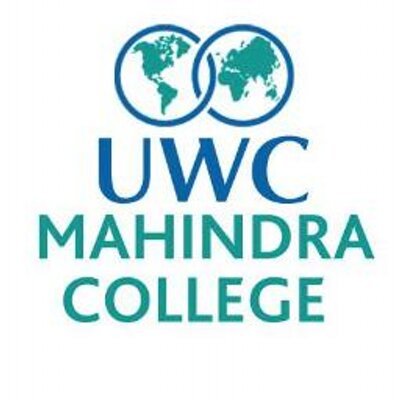
Sports
The sporting events are organized at the institute and to encourage the individuals the benefits of physical exercises and activities. The campus houses numerous playgrounds and fields. Here Sports like Volleyball, Basketball, football, Athletics, Climbing, Kayaking form a vital aspect of the sports activities offered. The swimming pool is a huge Olympian sized one, and swimming activities are encouraged amongst the students. All sports and exercise are under the supervision of well-trained coaches who ensure safety along with fitness and fun.
Programmes
UWC is unique in its approach to learning. Here the common belief is based on the fact that the best lessons in life are learnt through new experiences, exchanges and the ‘service attitude’. This forms the basis of the programs offered at UWC.
Community Interaction is the prime focus at the campus. It requires active and mandatory participation of all students and teachers as well. This allows the individuals to get face to face with the various aspects of the different realms of life. This also brings the students into proximity with the rural environment, the wildlife and nature as well. The AKSHARA FOUNDATION is run by the institute which offers project-based learning at the campus.
The Programs includes the following three features:
- Project-Based Diploma-Curricular Richness: Project-based diploma program provides service and project-based learning offered by an expert. The institute is a hub of various innovative ideas that have been included in the IB curriculum of the college.
- Student Led Initiative: Includes active involvement of the student body at the core of the learning system . The ‘Community Fund’ and the ‘Theatre Season’ are all students initiatives at UWC Mahindra. This gives the student body opportunities to lead the decision making processes..
- The Indian Connection: Context building courses such as ‘This is India’ and ‘Global Affairs’ form a vital aspect of program-based learning at UWC Mahindra College. This helps the students engage with their culture, the roots and traditions. It also exposes the various diversities and the cultural richness that the country is known for.
- ‘Triveni’ Program: Co-curricular activities are offered through CREATIVITY, ACTIVITY, SERVICE (CAS). This is known as the ‘Triveni Program’. Here the project-based learning extends to four different areas: Peace and Justice, Sustainability, Communication and Culture, and Outdoor Education. The students are required to participate in at least one area, which is a part of community projects.
Community Service
Triveni program and the Akshara project form the basis of the community service at MUWCI. This includes the participation of the students in the local community services that involve the neighbouring villages and rural areas. Here the students work in the local schools, organic farming and active participation in various NGOs.
Academics and Admission
Curriculum: IB Diploma Program
Subjects Offered:
- Language and literature
- Language Acquisition
- Individuals and Societies
- Sciences
- Mathematics
- Arts
METHOD:
Standard Level: Choice of Three subjects
Higher Level: Choice of Three subjects
Three Core Parts: IB DP
Apart from the six subjects with three in each Standard and Higher level, the students have to participate in ‘three core parts’ that are:
- Extended Essay ( EE): A topic of interest is chosen by the students to analyse writing and research capabilities. The topics are to be selected from ‘six subject groups’ and is 4000 words long. This is done under the guidance of an academic supervisor
- Theory of Knowledge (TOK): This is an Oral presentation and 1600 word long essay. This is to understand the student’s knowledge about a certain topic and how much of an understanding they have of the subject.
- Creativity Activity Services (CAS): This is to ensure that the students develop empathy towards others in society. The program also inculcates in them the art of taking responsibility, development of social and creative skills. It also includes Outdoor activity that involves engaging with the local community.
The Admission Process
- The UWC National Committees nominate the eligible students. (The United World College Committee of India is the body that nominates Indian, resident and PIO/OCI students.)
- The applications starts in June and ends in January.
- The selection process requires the students to be able to show UWC values and academic merit
- The selected students have to appear for the next level selection process held at UWCMC campus, Pune.
- This selection involves various activities, Group Discussions, Object presentations, written test, Computer test and Personal Interview.
- Finally, the students are selected based on their overall performances. They are nominated to study at the UWC campuses worldwide, including Mahindra.
The Global Selection program
The Global Selection Program is yet another method to get into any of the 16 UWC colleges globally. This is for those students who wish to ‘skip’ through the financial need assessment during the selection process. A certain number of seats are available across the various UWC colleges for these students. Their selection is done through the global selection method. Here, these seats are not ‘scholarship-based’ and would require the payment of the entire fee by self.
About the author
I have a passion for word play and considers language as a tool for much deeper human expressions. I aspire to help the youth 'write a new start ' through this wonderful platform. Currently I am working on learning to enrich my 'Urdu'.
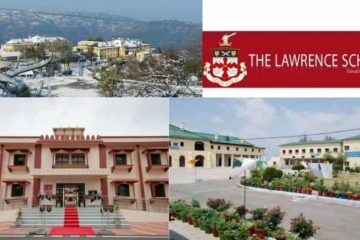
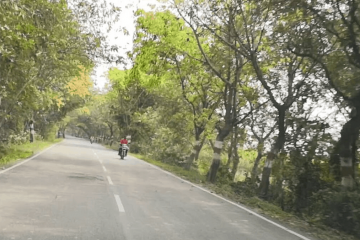
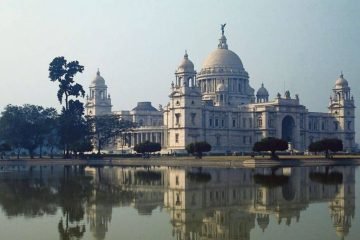
0 Comments